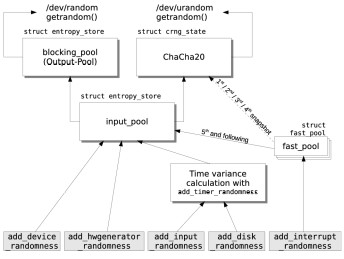My understanding of how /dev/urandom works is that the kernel collects true randomness from a variety of sources, and mixes them together to remove statistical bias. It does this at regular intervals to refresh the entropy pool.
The CSPRNG then takes a subset of these bits to generate random bits for consumption.
My question: in the course of dipping into the entropy pool, does the CSPRNG also update the entropy pool or is that done only by the OS?

